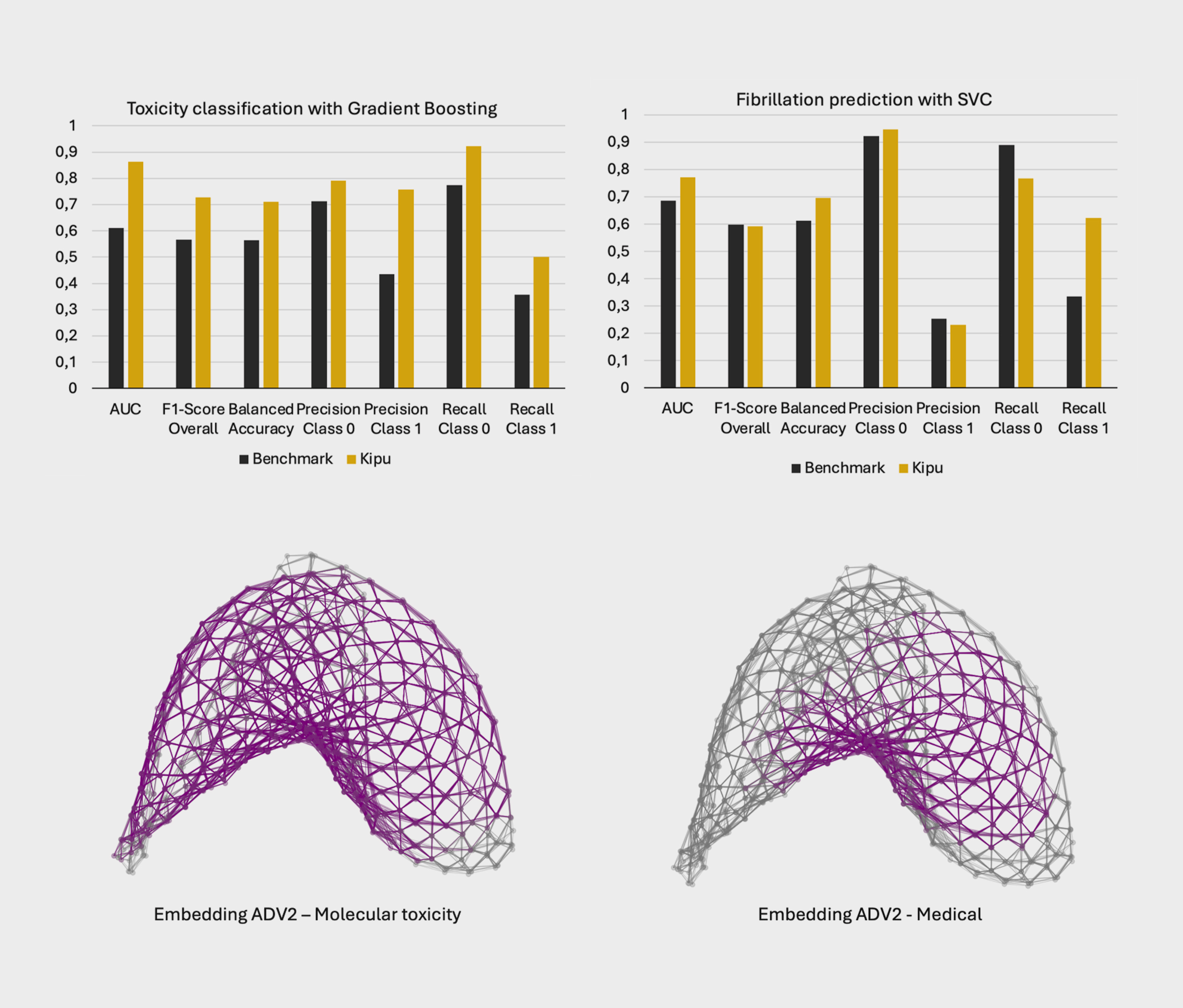
Kipu Quantum has demonstrated the practical utility of quantum feature mapping for enhancing classical machine learning models in industrial domains such as drug toxicity prediction and medical diagnostics. The method leverages quantum quench dynamics on D-Wave’s Advantage 2 hardware, encoding classical data into complex spin-glass Hamiltonians and evolving them into entangled quantum states. These states are used as feature representations, boosting model accuracy beyond classical baselines. In tests involving over 200 qubits, the approach yielded a 41% AUC (Area under the Curve) improvement in molecular toxicity classification and an 85.9% increase in recall for predicting complications from myocardial infarction, demonstrating quantum advantage level performance.
To validate the approach, Kipu applied Stratified Cross-validation and benchmarked results against state-of-the-art classical models across multiple metrics including AUC, precision, F1-score, and recall. The quantum-enhanced models consistently outperformed classical counterparts. For instance, in the myocardial infarction dataset, the use of quantum feature maps improved balanced accuracy by 13.6% and recall by 85.9%. These gains underscore the ability of quantum-generated features to capture complex, nonclassical correlations in high-dimensional data, and their compatibility with classical classifiers such as Gradient Boosting and Support Vector Machines (SVCs).
Importantly, Kipu emphasizes that these are not simulations or quantum-inspired models, but real experiments run on current quantum hardware in the coherent annealing regime. The company builds on recent advances demonstrating computational supremacy in quantum critical dynamics, translating them into measurable industrial outcomes. This work represents a crucial step from experimental supremacy to real-world quantum advantage. The methodology is broadly applicable and compatible with existing AI pipelines, offering a scalable route to near-term impact across pharmaceuticals, healthcare, finance, and beyond. Kipu invites collaborators to explore its datasets, models, and solutions to extend the scope of applied quantum computing.
Read the official blog post here, the LinkedIn announcement here, and the Science paper here.
March 27, 2025

